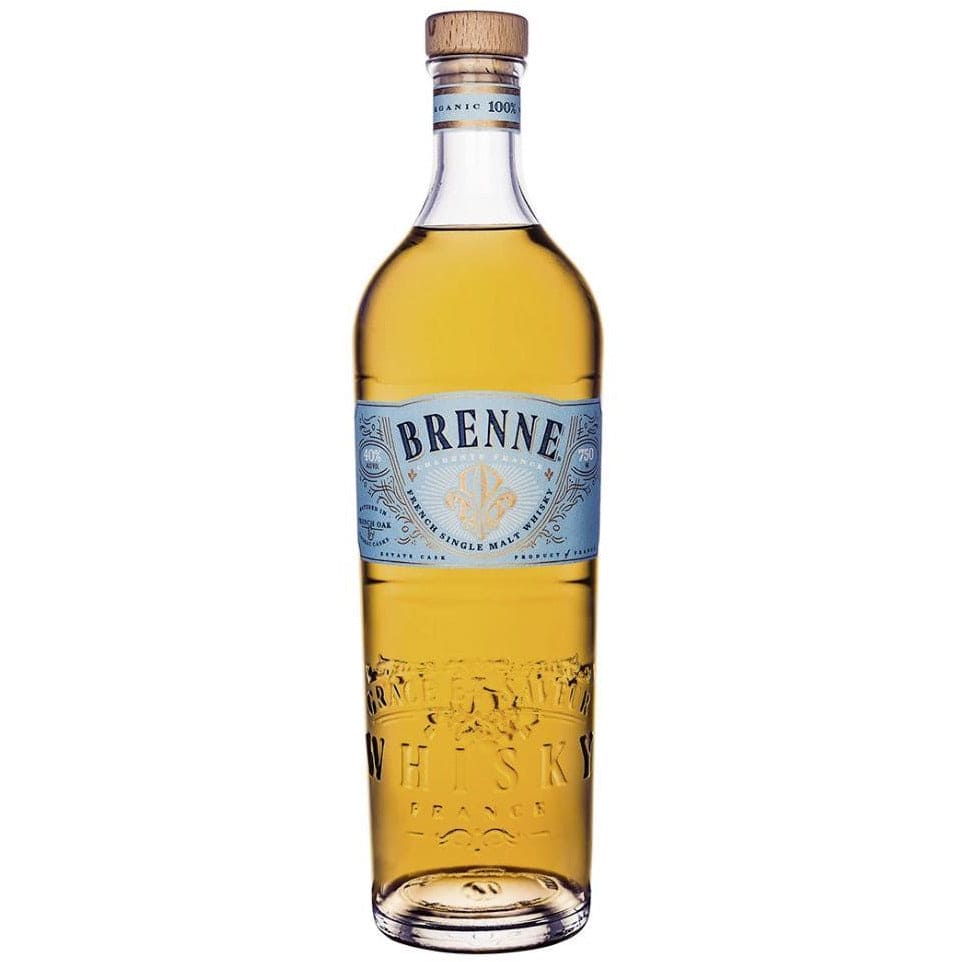
Brenne Estate Cask French Single Malt Whisky
The first single malt in the word aged exclusively in French Limousin Oak and Cognac casks, Brenne Estate Cask is twice-distilled in a copper alembic still, and aged for a minimum of six years. The whisky has perfumed fruit and French patisserie aromas with creamy and complex sugar notes of rich creme brûlée and burnt caramel. On the palate: notes of banana, tropical fruits, and warm spices like cinnamon and clove.
Ex-professional ballerina turned world whisky explorer, Allison Parc met a third generation Cognac producer who had recently distilled a single malt at his distillery in the heart of Cognac, France. Most of this whisky had been aging three to four years in new French Limousin oak barrels.
Allison and the distiller collaborated for the next 3+ years to refine the aging spirit and add to the barrel stock. In a stroke of genius, they incorporated the house’s used Cognac casks into the mix, which ultimately kickstarted the finished product that is Brenne Whiskey.
Brenne is all about the terroir in whisky. 100% organic seed to spirit, the barley grows on the farm where the distillery resides.

Explore a World of Spirits and Liquor through our Comprehensive FAQ Section.
Discover a World of Spirits and Liquor in our Helpful FAQ Section.
Types of Spirits
- Whiskey: Made from fermented grain mash and aged in wooden casks.
- Vodka: Typically distilled from grains or potatoes and known for its clear, neutral flavor.
- Rum: Produced from sugarcane byproducts like molasses or sugarcane juice.
- Tequila: Made from the blue agave plant, primarily in the area surrounding Tequila, Mexico.
- Gin: Distilled with botanicals, primarily juniper berries, giving it a distinctive flavor.
Production Process
- Fermentation: The process where yeast converts sugars into alcohol.
- Distillation: Separating alcohol from the fermented mixture to increase its concentration.
- Aging: Storing spirits in barrels to develop flavors over time.
Tasting and Pairing
- Tasting Notes: Learn to identify different aromas, flavors, and textures.
- Food Pairings: Discover which spirits complement various dishes, enhancing the dining experience.
Cocktails and Mixology
- Classic Cocktails: Recipes and techniques for making popular drinks like the Old Fashioned, Martini, and Mojito.
- Mixology Tips: How to balance flavors and create your own cocktail recipes.
History and Culture
Origins: The historical background of different spirits.
Cultural Significance: How spirits are enjoyed and celebrated around the world.

